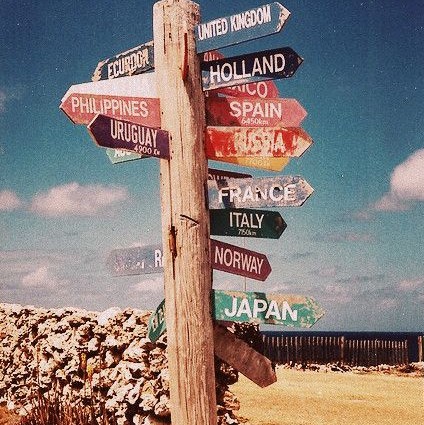From the very beginning of my undergraduate degree, I knew that I wanted to pursue research overseas. Not so much a permanent relocation, but I was very keen to leverage the international nature of science to see the world. I secured a post-graduate position with a group leader who was open and supportive of this goal, and was instrumental in helping me go abroad during my PhD research. What followed was a whirlwind trip to Cambridge, UK, where I worked on acquiring a new technique to add to my developing skills arsenal. Despite the short stint, it was hands down the most personally and professionally life changing experience.
This is not to say that my home institute isn’t producing to good science – it is – but through this experience I was immersed in a city bursting at the seams with passionate experts, cutting-edge research and world-leading techniques. To say I fell in love would be an understatement. The cohesiveness and intertwined networks I observed whilst there were an incredible, eyeopening window into the collaboration that comes from bringing together world-leading experts from a broad range of disciplines in a melting pot dedicated to the pursuit of knowledge.
After returning to Australia, I worked towards the holy grail – thesis submission – and dreamed of the postdoctoral jobs I could chase internationally. One year on I am still here, and in a position I am thoroughly enjoying, but you better believe I still have my eye on an overseas position in the next 5 years. I do wholeheartedly believe that a diverse research training period is a critical foundation for a well rounded researcher, giving context and cultivating understanding of the abundant theories and approaches one can take to answer the big scientific questions. Diverse experiences offer the chance to explore the problem at hand from a new perspective, leading to unique insight.
And as excited as I still am about all the places science could take me in the next few chapters, my extra-continental daydreams have been tainted with an air of urgency of late. I am beginning to feel as though, with the current funding climate, the only way I am going to get a foot in the door is to do my time in a country where the pay is less, the work-life balance a little more unbalanced and my family a little(lot) further away. Even worse, I am acutely aware that in this situation I am the privileged one. Assuming I am lucky enough the secure a position in a good lab group in my area of research, I have very few restrictions or barriers to relocation. Sure, money is always an issue. And there might be a few personal hiccups (my partner is not infected with my incurable case of wanderlust), but I am (relatively) young, without kids and with no significant financial constraints (other than the misguided hope to someday get on the property ladder).
Many of my colleagues, and friends, do not enjoy the same level of flexibility.
And so, I suppose this post is more about what you think – is it possible to progress in the Australian scientific research landscape without being a nomad, at least for a little while? And what effect does this have on the diversity retained in the upper echelons of the academic institutions?

